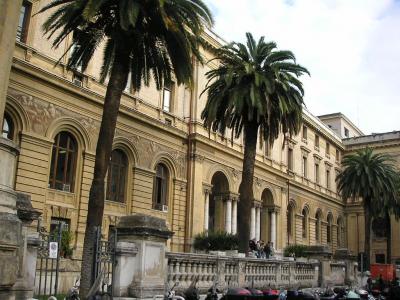Sapienza corrector fluid 'nepotism' row

ROME – Officials at La Sapienza university have strongly denied charges that allowing the new Rector's son to break the rules in a university exam amounted to nepotism.
Former Rector of La Sapienza University, Luigi Frati, earned notoriety after a series of discoveries dubbed “parentopoli” revealed that during his time as Rector at La Sapienza he hired not only his wife but also his son and daughter to work at the university.
Two months ago Eugenio Gaudio was elected to the position of Rector at La Sapienza, Europe's largest university. Many hoped that with his appointment allegations of nepotism would become a thing of the past. However foul play has already been detected.
The latest accusations concern Eugenio's son, Domenico. According to one Professor at La Sapienza, Domenico broke the rules in order to obtain his place on a doctorate. “He should have been excluded straight away. Corrections had been made to his written work using corrector fluid, which breaks rules on anonymity,” the professor told L'Espresso magazine.
Guido graduated with distinction in Autumn 2013 and applied for a competitive study grant for a doctorate in structural engineering and geotechnics. Normally the results of such competitions are published after a week, but in this case they took two months to be published.
The delay was caused by university lawyers who had identified the anomalous use of corrector fluid on Domenico's paper and wanted to get the legal opinion of the attorney general. The attorney general communicated to then Rector Frati via fax: “According to the prevailing laws no sign can be present on the paper that could objectively make it recognizable.” The fax also stated that “It is certain that the use of corrector fluid is not allowed as it could lead to recognition [of the paper's author].”
But the lawyers suggested that the candidate could be forgiven in this case because nobody had read article 8 of the competitive grant to the students before the competitive exam started, which forbids the use of anything except black ink on the paper.
“Some university boards identified errors that were merely formal. It was noticed that the board had not read the instructions to the candidates. The work was marked in a way that did not link the work to the student and only on the basis of merit,” said the university's press office. “But the legal office decided to suspend everything anyway while it asked for an opinion from the attorney - and then it applied what it was told.”


